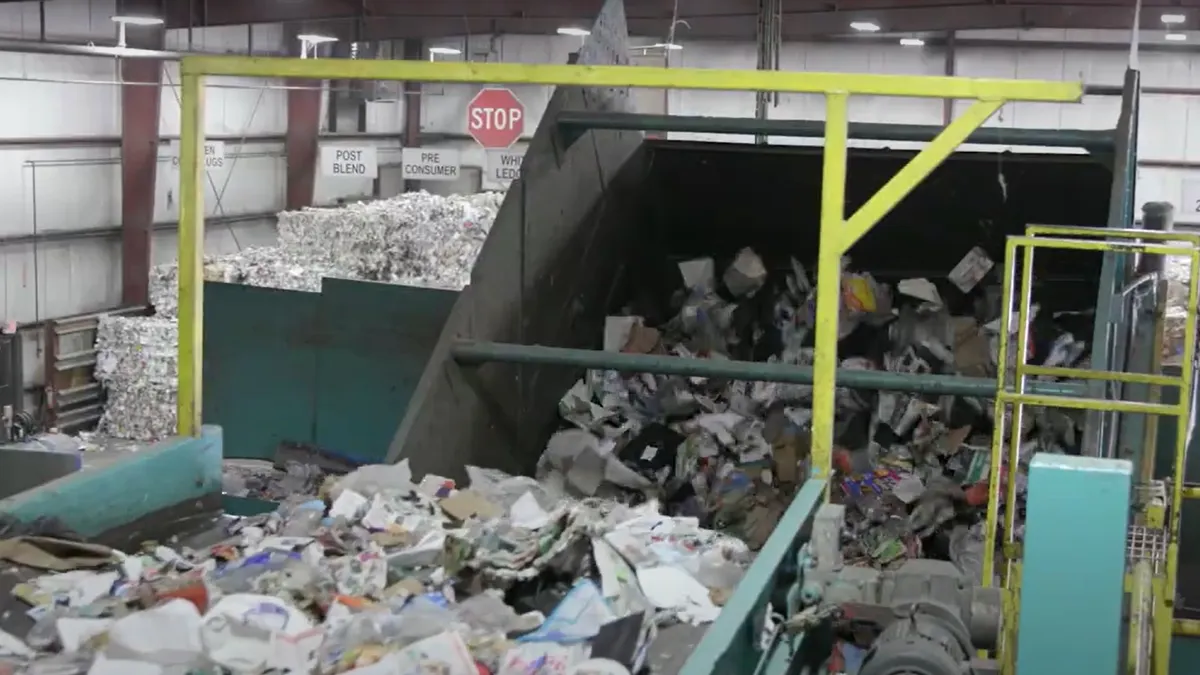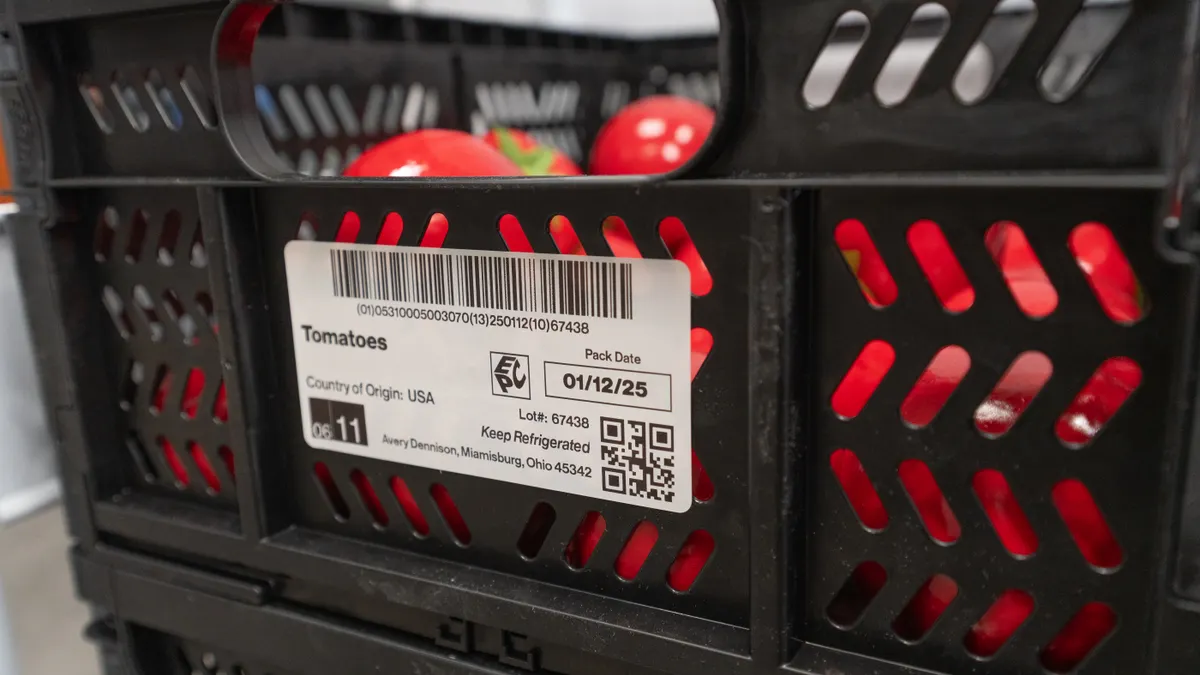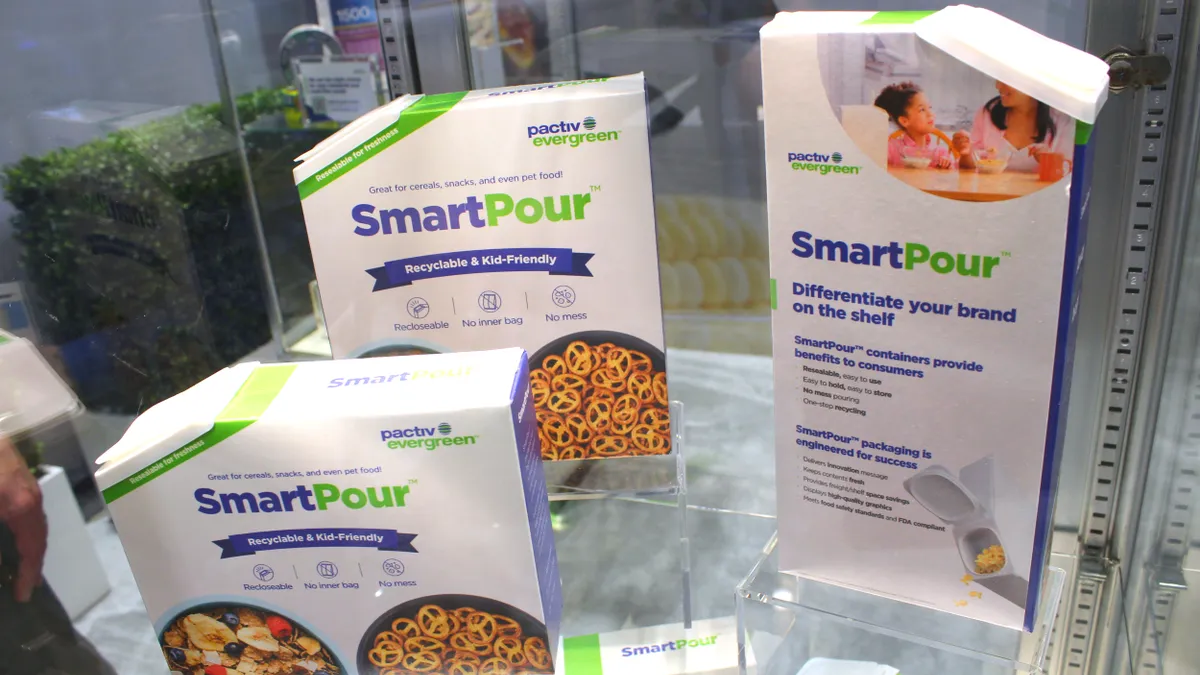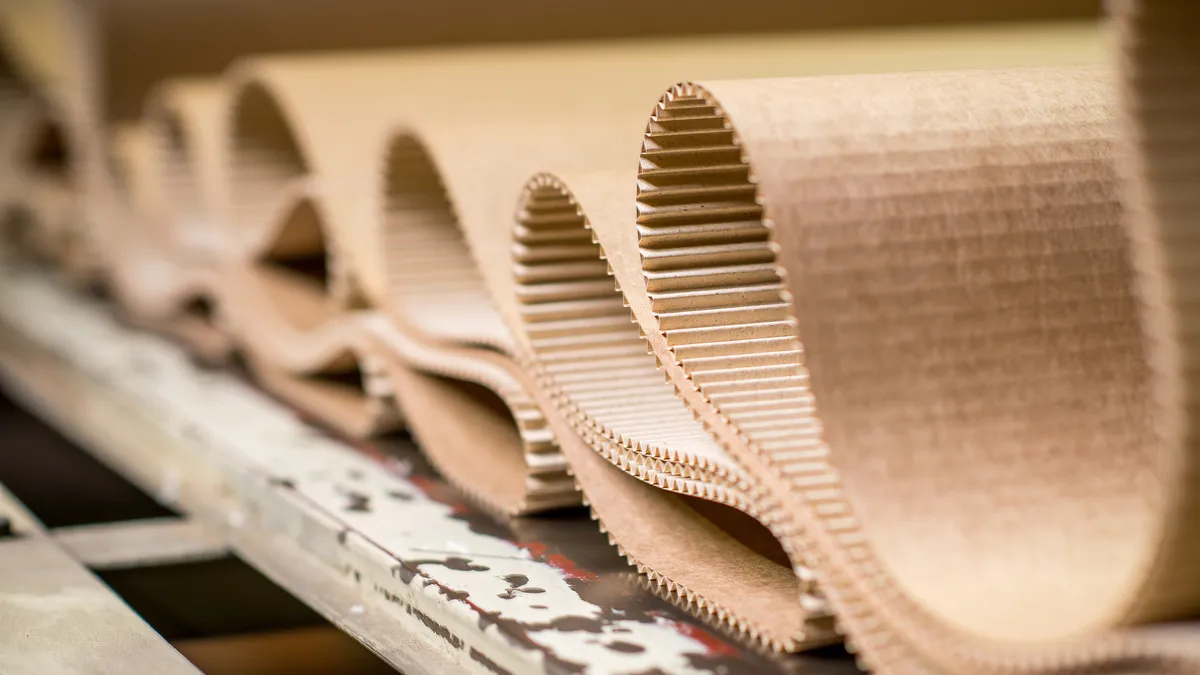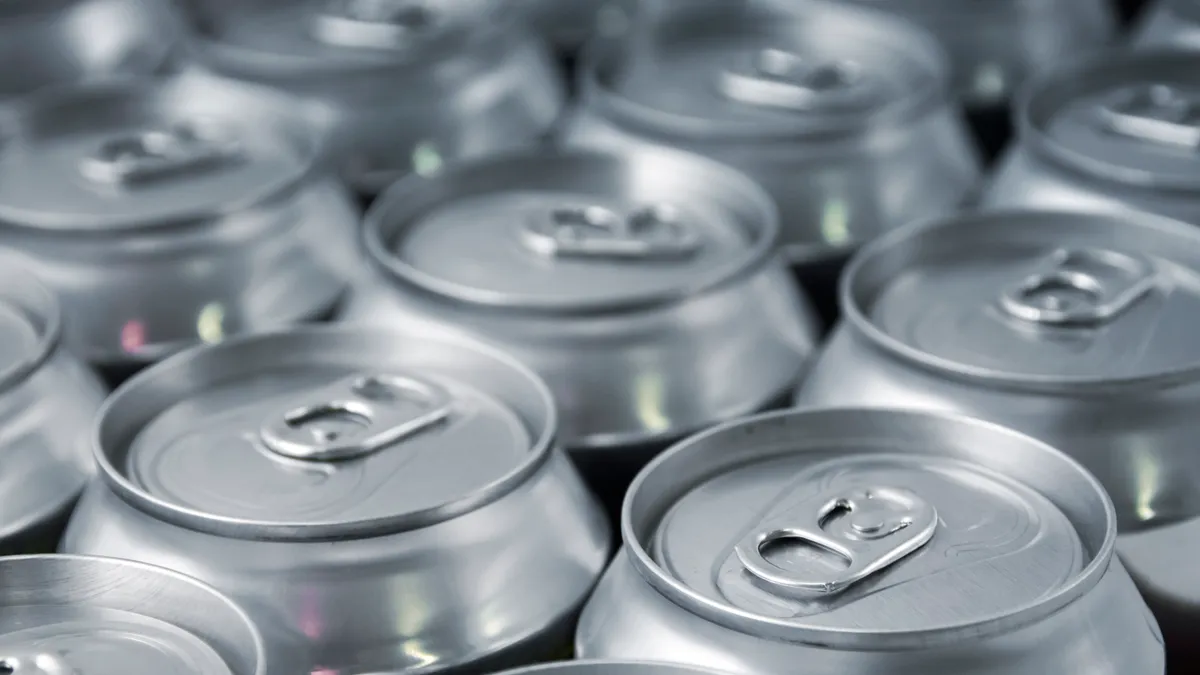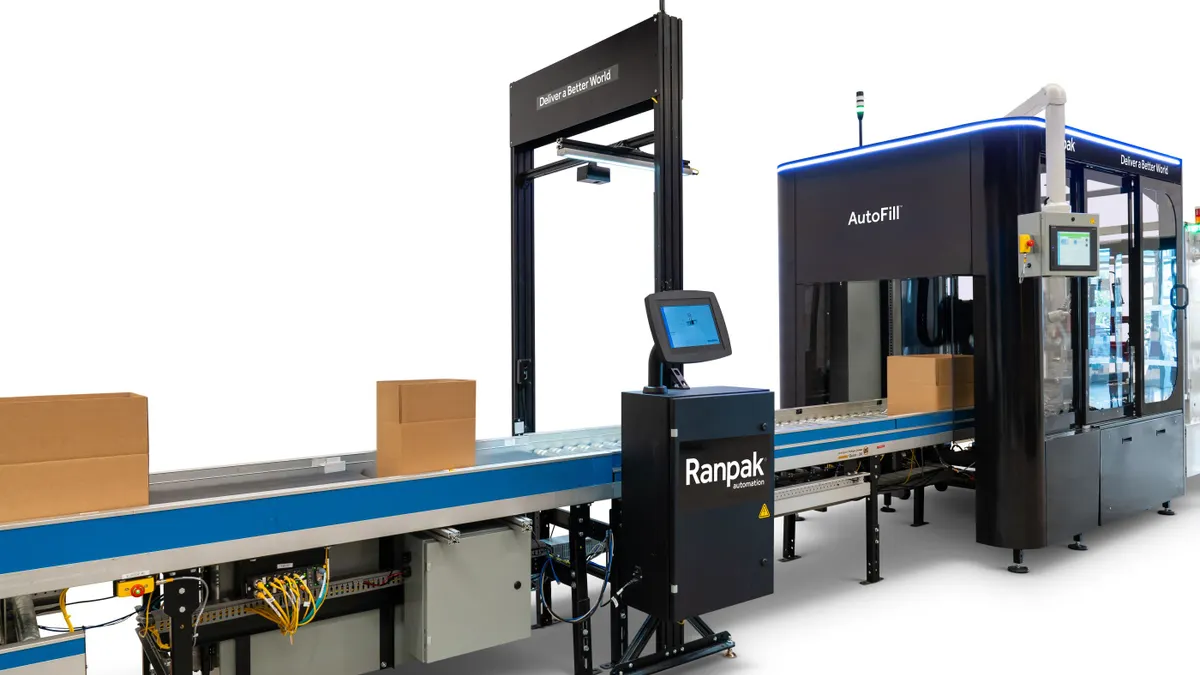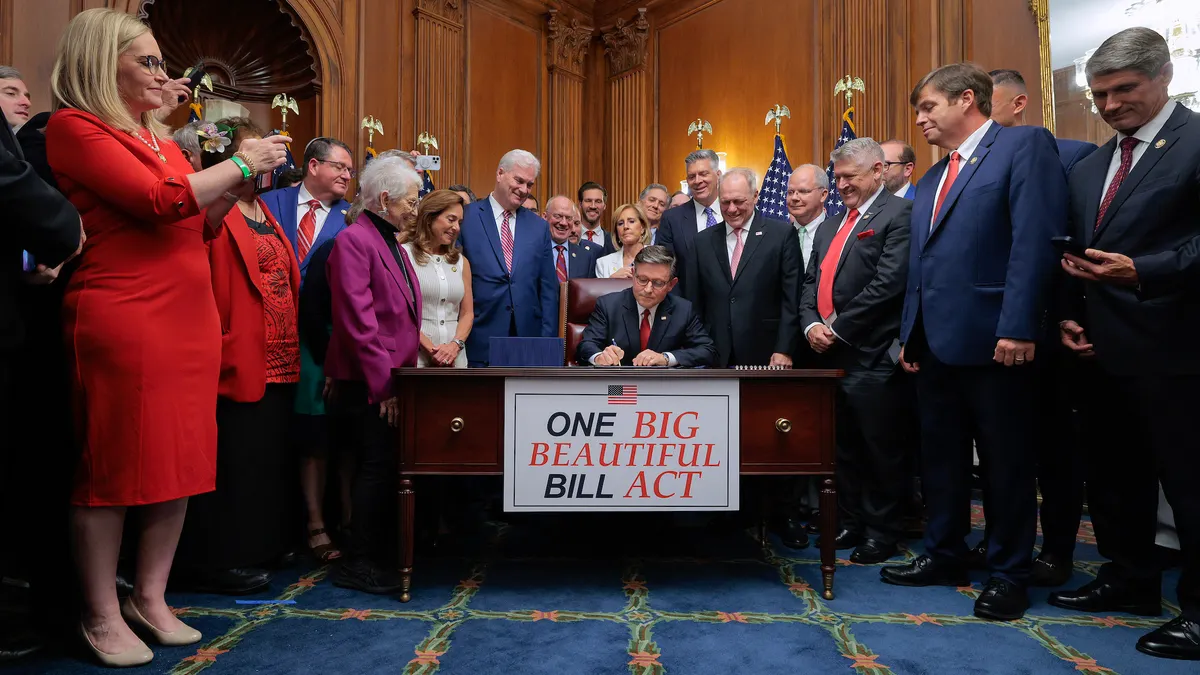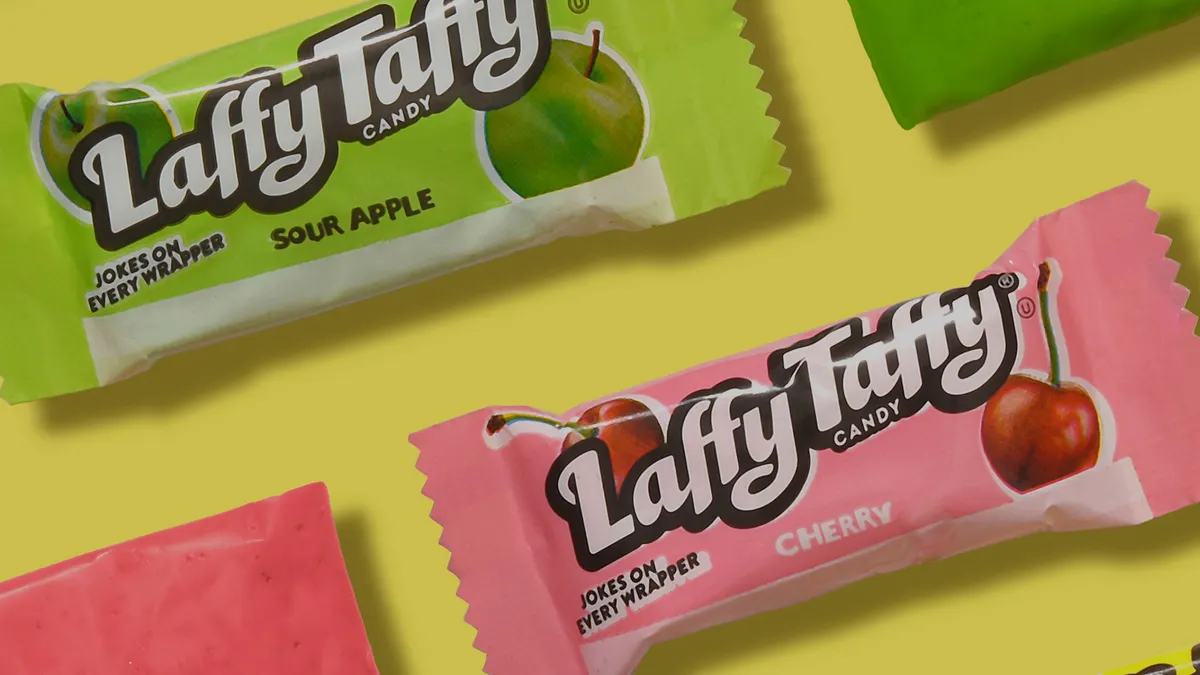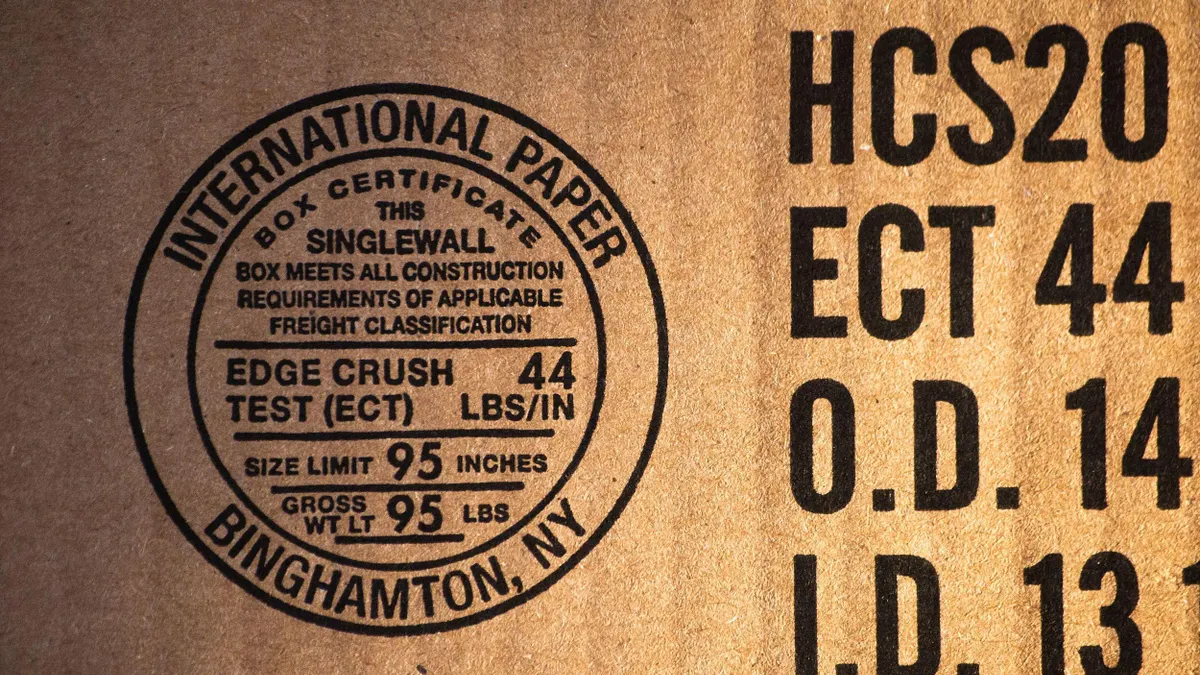Sonoco has hardly shied away from change the last 18 months: The packaging supplier has restructured its business units, shaken up executive leadership, acquired metal containers business Eviosys and sold its thermoformed and flexibles business to Toppan Holdings.
But along the way, it’s been making progress on sustainability initiatives, both by refining existing programs and launching new ones. Company leadership detailed some under-the-radar sustainability work from 2024 in a conversation with Packaging Dive.
“As a sustainability team, we're consciously looking at other areas where there are sustainability-related activities that maybe we haven't historically been capturing," said Scott Byrne, vice president of global sustainability at Sonoco. "There is a shift in focus [from a ‘circular economy’] to carbon and carbon accounting, and accurately tracking our emissions and the emissions of our suppliers."
The company reduced its scope 1 and 2 greenhouse gas emissions from 1.19 million metric tons of carbon dioxide equivalent in 2023 to 1.14 million MTCO2e last year; the target is 0.96 million MTCO2e by 2030. Scope 3 GHG emissions dropped notably, although Sonoco said in its newly released 2024 sustainability report that its calculation methodology for this category “changed from spend based to average data based in 2024, which likely accounts for the decrease reflected.” It intends to establish a new baseline this year.
Data listed in the report is solely for Sonoco, not Eviosys, considering that acquisition closed this year. While the company plans to include data from Eviosys next year, it doesn't anticipate large changes in the overall reporting, Byrne said.
"[When] you look at things like purchased materials, the amount of plastic we purchase is going to be lower, and the amount of metal we purchase with Eviosys is going to be higher. Some of that mix is going to change," he said. "If you look at the regulatory environment and what we're required to report from an ESG perspective or an EPR perspective, it won't change that much."
While reporting remains consistent, Byrne highlighted areas of change that helped Sonoco advance its sustainability story in 2024, including in transportation, waste and recycling, process improvements and toxics.
Logistics shift
Reducing transportation emissions is one area where the company made progress in 2024. Sonoco nearly doubled its number of intermodal shipments, freight that uses two or more modes of transportation. It increased rail transport, which Byrne said is three to four times more efficient than solely using trucks.
The transportation shift resulted in nearly 2,400 metric tons of CO2 saved. Focusing on logistics is partly to satisfy customer desires, Byrne said.
"When you look at the requests we get from our customers, where they want us to accurately represent the emissions attributable to them in our operations, we have to start looking a little bit more broadly than just the embodied carbon in a package," he said. "We have to look at our scope 1, 2 and 3 emissions more holistically. Part of that is logistics."
In driving efficiency and cutting emissions from the overall system, "the hope would be we can then pass along in some way those carbon savings to our customers," he said.
Metal work
Certain metal-centric transportation initiatives also helped Sonoco reduce its emissions in 2024.
One involved adding equipment at the Henderson, Kentucky, metal packaging plant to improve processes, resulting in a 169-metric-ton annual reduction in CO2, or 67% from the previous year. The company is "making investments in our plants so materials don't have to move around as much," Byrne said.
For one SKU, the Henderson facility previously would ship 70 million metal ends per year to Wausau, Wisconsin, for compound application, then the components would travel to can plants in Cincinnati and in Jamesburg, New Jersey, for seaming. The company has installed a new compound liner in Henderson to do the coating work on site, then ends are shipped to the two seaming sites.
The other metals logistics initiative also boosts waste reduction efforts. Last year, Sonoco introduced a metals recovery program that diverts recyclable metals from landfill while optimizing steel material freight.
"We've been investing in baling units for some of our metal operations — they're called briquette machines — basically densifying that material so you can go directly to an end market, versus sending things loose," Byrne said.
Recycling strategy
As a packaging company, Sonoco has a unique portfolio attribute that furthers its recycling strategy: It owns four MRFs in the United States. Those materials recovery facilities in North Carolina and South Carolina take in both curbside residential and commercial material, and they are well positioned in proximity to some of the company's mills, Byrne said.
“Our paper mills are now all 100% recycled content," he said. "From a sustainability team perspective, it's been a huge benefit to have those MRFs."
Besides supplying materials for new packaging, these facilities aid product development, Byrne said, especially as the company navigates emerging extended producer responsibility laws. For instance, Sonoco has the ability to run real-world tests on material movement through its own MRFs instead of relying on lab testing, he explained.
The company ran MRF tests for its new paper-bottom cans, which it introduced in Europe in 2023 and in the United States last year. Sonoco wanted to observe how the recycling systems would respond to the new cans versus traditional metal-bottom cans.
The company now touts the paper-bottom can's recyclability benefits compared with metal-bottom versions. Customer demand for the all-paper product, largely fueled by the sustainability benefits, prompted Sonoco's commitment to invest millions of dollars this year in four U.S. facilities that produce the paper cans.
The paper-bottom cans offer a “great recyclability story, moving more towards a monomaterial, higher fiber content; you also get a lower carbon footprint,” Byrne said.
Tackling toxics
Sonoco made headway on "forever chemicals" management, having eliminated intentionally added PFAS across most of its supply chain last year. It especially focused on food-contact packaging.
"For food-contact packaging, whether it's process aids or inks or different waxes, PFAS was never intentionally added by Sonoco," Byrne said. But regulations are different in some global markets, "so there are still areas internationally where we're working through that with our supply chain to remove PFAS."
Moving forward, the company intends to identify other substances of concern, such as PVC. Looming legislation for toxics influences where Sonoco concentrates, just as with PFAS, according to Byrne.
"We need to get out ahead of that to make sure if it does become law, like PFAS did, we're prepared," he added. Sonoco therefore has been working with suppliers to review chemicals or materials that could end up on banned lists.
This collaboration mirrors the work with partners across supply chains to improve sustainability, particularly emissions reduction.
"We're on the journey, but there's still a way for everyone to go before we get there," Byrne said



